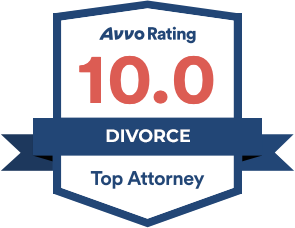
Charlotte Equitable Distribution Attorney
Helping with Property Distribution Matters in North Carolina
What is Equitable Distribution?
Equitable Distribution is the process by which property, assets, and debts are divided and distributed following a dissolution of marriage. Generally, any asset or debt acquired by spouses during their marriage is subject to equitable distribution by the Court. This includes:
- Homes
- Bank accounts
- Retirement accounts
- Credit card debts
- Vehicles
- Student loans
- Household goods
- Boats
- Jewelry
There are exceptions and certain assets or debts that may not be subject to equitable distribution, such as items acquired during a marriage by inheritance or gift.
Each equitable distribution case is unique and with the help of a knowledgeable Charlotte equitable distribution lawyer here at Miller Cushing Holladay, we can help you achieve an equitable and fair distribution of your marital assets and debts.
Need help with equitable distribution in your divorce? Contact us today at 980-321-5590 to speak with an experienced Charlotte equitable distribution attorney.

Many North Carolinian’s assume that they receive one-half of each individual asset or debt under equitable distribution, which is not correct. The Court is charged with distributing all marital assets and debts equally, unless it determines that an equal division is not equitable.
The Court can use distribution factors, such as duration of the marriage or any direct or indirect contribution made by one spouse to help educate or advance the career of the other spouse, to divide the marital estate equitably rather than equally. Either spouse can also ask the Court to award him or her a larger share of the marital estate.
If your spouse has control over most of the marital assets and you do not have adequate resources to sustain throughout your separation, you have the right to ask the Court to award you an “interim distribution” of marital assets. Interim distributions are awarded to spouses unless the other spouse can show the Court good cause for not doing so.
Types of Assets in a Divorce
Divorces involve the complex task of dividing assets, and understanding the various types is crucial for a fair distribution. Here are common types of assets considered during divorce proceedings:
- Marital Home: The marital home is frequently a substantial asset, and determining whether to sell, transfer ownership, or allocate it to a specific spouse demands thoughtful deliberation.
- Financial Accounts: Bank accounts, savings, and investments fall into this category. Balances at the time of divorce are typically subject to division.
- Real Estate: Beyond the family residence, additional real estate like vacation homes or rental properties is categorized as marital property.
- Retirement Accounts: 401(k)s, pensions, IRAs, and other retirement accounts acquired during the marriage are subject to equitable distribution.
- Personal Property: Furniture, jewelry, artwork, and other personal belongings are evaluated and divided during divorce.
- Vehicles: Cars, boats, motorcycles, and other vehicles fall into this category. Their value is considered when determining asset distribution.
- Businesses: Should one spouse possess ownership of a business or hold a partnership position, the value of the business could constitute a component of the marital estate.
- Debts: Liabilities, including mortgages, credit card debts, and loans, are also considered when dividing assets.
Understanding the nature and value of these assets is essential for achieving an equitable division. Legal guidance from our experienced Charlotte equitable distribution lawyers ensures that all assets are properly identified, valued, and distributed in accordance with the applicable laws, leading to a fair resolution for both parties.
Factors Influencing Equitable Distribution
In North Carolina, when the court divides marital property, several key factors come into play. These factors help the court ensure that the division is fair and just for both parties. Some of the main factors include:
- Standard of Living
- The standard of living the couple enjoyed during the marriage can influence how assets are divided.
- If one spouse was used to a higher standard of living, the court may factor this into decisions on property distribution, especially if one spouse will need more financial support post-divorce to maintain a similar lifestyle.
- Spousal Misconduct
- The behavior of each spouse can also impact the division of assets.
- While North Carolina is a no-fault divorce state, misconduct such as adultery or abandonment can be considered if it significantly affected the marital relationship or financial situation.
- For example, if one spouse’s affair led to significant financial loss, the court may take this into account when distributing assets.
- Health of the Parties
- The physical and mental health of both spouses can play a role in how assets are divided.
- A spouse in poor health may have greater future needs, especially if they require medical care or cannot work. The court might consider this factor when deciding on property distribution or spousal support.
Interim Distributions During Separation
Sometimes, during the divorce process, one spouse may need immediate access to marital assets before the final division occurs. This is where interim distributions come into play.
- When They Are Awarded
- Interim distributions are typically awarded during the separation period, before the final divorce settlement.
- These distributions help provide the financially weaker spouse with the necessary resources to maintain their living situation.
- Purpose and Benefits
- The purpose of interim distributions is to ensure both spouses can live independently during the divorce process.
- This can be crucial if one spouse has primary access to the marital assets or income, leaving the other spouse without financial means to support themselves.
Protecting Assets During Divorce
It’s important to take steps to protect your assets during a divorce, especially if you suspect that your spouse might attempt to hide or dissipate assets. Here are some ways to safeguard your financial interests:
- Prenuptial and Postnuptial Agreements
- If you entered the marriage with a prenuptial agreement, or if you have a postnuptial agreement, these legal documents can clearly define how property and assets will be divided in the event of a divorce.
- These agreements can be incredibly useful in preventing disputes and ensuring that both parties understand their rights and responsibilities.
- Filing for a Temporary Restraining Order
- In cases where there’s concern that one spouse may attempt to sell or hide assets during the divorce process, the court may issue a temporary restraining order.
- This order can prevent the sale, transfer, or concealment of assets and ensure that all marital property is accounted for during the divorce proceedings.
By understanding these factors and taking steps to protect your assets, you can better navigate the process of equitable distribution and work toward a fair resolution in your divorce.
The Equitable Distribution Process in North Carolina
- Identifying Marital Property
The first step in the equitable distribution process is identifying what constitutes marital property. This often requires a detailed analysis of financial documents, including bank statements, tax returns, and property deeds. Both parties must disclose all relevant assets and debts to ensure a fair division. - Valuation of Assets
Once marital property is identified, the next step involves valuing these assets. This can be straightforward for liquid assets like cash and bank accounts but may require professional appraisals for real estate, businesses, and other high-value items. Accurate valuations are essential to ensure that both parties receive a fair share. - Determining Distribution Factors
North Carolina courts take several factors into account when determining how to divide marital property equitably. Some of the key factors include:- Duration of the Marriage: Longer marriages may result in a more equal distribution of property.
- Contributions to the Marriage: This includes both financial contributions and non-monetary contributions, such as homemaking or caregiving.
- Economic Circumstances: The financial situation of both parties at the time of the distribution can affect how property is divided.
- Future Needs: Courts consider the future needs of each spouse, particularly if one spouse may have a greater need for support or resources post-divorce.
- Negotiation and Settlement
Many cases settle outside of court through negotiation between the parties. Mediation is often a valuable tool in these situations, allowing both spouses to discuss their priorities and reach a mutually agreeable settlement. The Charlotte equitable distribution attorneys at Miller Cushing Holladay PLLC are skilled negotiators, working diligently to facilitate productive discussions and advocate for your interests. - Court Proceedings
If a settlement cannot be reached, the case may proceed to court. During the court proceedings, both parties present their case, including evidence of asset valuations and arguments regarding equitable distribution. The judge will ultimately make a determination based on the evidence presented and the factors outlined in North Carolina law.
Frequently Asked Questions (FAQ) About Equitable Distribution in North Carolina
What is the difference between equitable distribution and community property?
- Answer: In North Carolina, equitable distribution refers to the fair division of marital property based on a variety of factors, rather than an equal 50/50 split. Community property, on the other hand, divides marital property equally, regardless of other circumstances. North Carolina follows the equitable distribution approach, ensuring that property is divided in a manner that the court deems fair.
Can I request a larger share of the marital estate if my spouse committed adultery?
- Answer: While North Carolina is a no-fault divorce state, if adultery is proven, it can influence the court’s decision regarding the division of property. However, adultery alone is not an automatic reason for receiving a larger share of assets, but the court may consider it when evaluating the circumstances surrounding the marriage and divorce.
How does the court determine the value of my assets?
- Answer: The court typically uses the most current and reliable information available to determine the value of assets. This can include appraisals for real estate, businesses, or valuable personal property. For liquid assets such as bank accounts, the value is generally determined based on account balances at the time of the divorce. Both parties may also present expert testimony to support their valuation of certain assets.
Can I change the division of assets after the final divorce decree?
- Answer: Once the divorce is finalized, the division of assets is generally final. However, in rare cases, if new information or circumstances come to light (such as hidden assets or fraud), a modification of the settlement may be possible. It’s important to act quickly and seek legal guidance if you believe there has been an injustice in the division of property.
Does the court consider the well-being of children when dividing assets?
- Answer: While the primary focus of equitable distribution is the division of marital assets between spouses, the well-being of children may indirectly influence the division of assets. For instance, the court may consider one spouse’s ability to care for the children when deciding whether to award them the family home or other assets.
Is it necessary to hire a lawyer for equitable distribution?
- Answer: While it is not legally required to hire a lawyer for equitable distribution, having an experienced attorney can significantly improve your chances of achieving a fair outcome. A lawyer can guide you through the complex legal process, help you protect your rights, and ensure that all assets are properly valued and divided.
Can a prenuptial agreement override equitable distribution laws?
- Answer: Yes, a prenuptial agreement can override North Carolina’s equitable distribution laws if it clearly outlines how
Ready to discuss your property division options? Contact us now at 980-321-5590 to schedule a consultation with our skilled legal team.

-
“Bethany was encouraging of questions and seems very knowledgeable”
– Jeremy Q. -
“Chris Miller and Brett Holladay were remarkable in their approach, plan and execution in my divorce case”
– Anupam P -
“I appreciate all he did to help”
– Elka J. -
“They were responsive to all of our concerns and really seemed to care about getting us the outcome that we wanted”
– Miranda M. -
“The ethics, personal client attention, and diligent client representation are well known within the local legal community.”
– Jenny H.
Contact Our Firm
Call 980-321-5590 or Fill Out this Form to Begin Your Case







